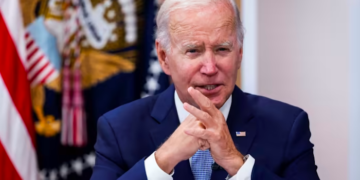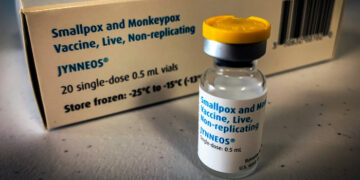Participants are cautiously optimistic as the Nigerian National Petroleum Corporation (NNPC) moves forward today, insisting that the majority of entities under the companies are still loss-making subsidiaries.
NNPC has been legally transformed into an entity that is subject to the Companies Act on July 1, 2022, according to provisions of the Petroleum Industry Act (PIA) (CAMA).
Despite President Muhammadu Buhari’s expected official unveiling of the NNPC today, stakeholders insist that the move should put an end to government arbitrariness, heavy-handed control, and wasteful practices.
In particular, Henry Adigun, an energy expert, is concerned about the refineries, where the company is holding on to thousands of people who are no longer needed. Despite the fact that the company is in transition, he claimed that the loss-making entities in the company had not been addressed during the months of transition.
Prof. Segun Ajibola, an economist, has urged the Nigerian National Petroleum Corporation (NNPC) to adopt a private sector-led business culture and ethos, focusing on profit as the primary goal.
He also advised the company to allow good corporate governance principles to influence its decisions and actions, adding that suboptimal decisions, which are often influenced by primordial considerations, must be put to the side. He added.
As a result, the Nigerian National Petroleum Corporation (NNPC) will become a more efficient and effective regulator of the country’s oil and gas sector, Ajibola said.
I’d like to see how this new company handles the moribund refineries on which taxpayers’ money is spent in billions of naira,” said Oke Epia, executive director of Order Paper Nigeria. In addition, I’d like to see how it adheres to and commits to ESG principles and global best practices for energy transition.”
There are concerns about how the company would handle a board that is perceived to be heavily political in composition and inclination, however, from Epia.
Dr Diran Fawibe, Chairman/CEO of the International Energy Services Limited (IESL), said that the new development remained a positive step forward. According to him, he and those who witnessed the establishment of the national oil company would be overjoyed if it performed to its full potential.
Nigeria has fallen to second place on the continent after Angola as a result of crude oil theft and low production, but most stakeholders who spoke with The Guardian yesterday said the situation could persist because government agencies are only taking cosmetic measures to address it.
Despite the fact that stakeholders are calling for a national emergency because the development has stopped most operators from pumping crude and deterred prospective investors, they insisted that worsening foreign exchange challenges, budget deficits, borrowing, poverty, inflation, and unemployment rate are imminent.
As the country’ security structure, NNPC, and the Nigerian Upstream Petroleum Regulatory Commission (NUPRC) drag their feet on a development that now holds the economy hostage, organized criminals may have succeeded in stealing crude oil worth $26.4 billion from Nigeria.
In June, Nigeria lost its top spot as Africa’s leading oil producer to Angola after failing to increase crude oil output, which is currently at record low levels.
A total of 1.158 million barrels per day (bpd) were produced in Nigeria in June, up from 1.024 million bpd in May, while 1.175 million bpd were produced in Angola in June, up from 1.162 million bpd in May.
Mele Kyari, NNPC’s Group Managing Director, claimed that the country loses 200,000 barrels of crude oil daily to oil thieves. The daily losses have amounted to 292 million barrels over the last four years. With an average price of $90 per barrel over the period, this has resulted in a possible $26.4 billion in losses. ”
Theft of crude oil has cost Nigeria about 250,000 barrels per day in the first four months of this year, according to the NNPC.
Even Richard Kennedy, Managing Director of Chevron Nigeria/Mid-Africa Business Unit, described crude oil theft in Nigeria as organized crime that should be differentiated completely from host community issues during a panel session held in Abuja during the recent NOG Conference.
It is important to distinguish between crude oil smuggling and host-community issues,” he writes. It’s a lot more substantial than that. This is, in a nutshell, organized crime.”
Nigeria is losing millions of dollars daily in revenue that could have been used to solve the country’s financial problems, according to him.
“It’s impossible to fathom how much crude is being stolen. That means $10 million a day is being taken away from the country, which can be seen in some of the figures that have been reported in recent days. NNPC owns 60% of the company, despite the fact that taxes on the remaining 85% have already been paid.
An OPEC report shows that Nigeria’s oil production fell by 14.94 million barrels in the second quarter of 2022. The report was scheduled for June 2022. In the second quarter of 2022, at a crude oil price of $14.94 per barrel on average, Nigeria’s earnings fell by about N703,76 billion, according to these figures.
Nigeria is expected to produce N1.299 million barrels of oil per day in the first quarter of 2022, according to an OPEC crude oil analysis based on information provided directly by the organization’s 13 member countries. OPEC’s daily quota for Nigeria is 1.799 million barrels per day. However, in the second quarter, the country’s oil production fell by 166,000 barrels per day to 1.133 million bpd. More than 14 million barrels of crude oil were lost in the second quarter of this year in Nigeria, according to this estimate.
In April, May, and June, a barrel of crude oil sold for $104.58, $113.34, and $122.71 respectively. With a price of $113.54 per barrel, crude oil sales were a loss of 14.94 million barrels worth N703.96 billion in the second quarter, according to this data.
According to data from the Nigeria Debt Management Office, a country heavily indebted, with the current administration surviving mainly on loans to finance budgetary provisions, the value of stolen crude by vandals in four years is about 30 percent of Nigeria’s total public debt public debt stock, which now stands at N41.60 trillion or $100.07 billion as of March 31, 2022. (DMO).
There are reports in The Guardian that vandals are bypassing anti-ballistic pipelines to disrupt production rather than stealing oil from wellheads, as some operators had previously claimed to the paper.
Several prominent Nigerians have come forward to admit that the nation’s security agencies were complicit in the theft and movement of oil barges in Nigeria’s coastal waters.
More than 90 percent of the crude produced by operators, according to IPPG Chairman Abdurazaq Isa, has been stolen.
Producers in the Niger Delta suffered losses ranging from 15% to 90% in just one year in 2021.” Our company’s bottom line, government revenue, and national safety are all jeopardized as a result of such massive theft-related losses.
Because of the high cost of security, we are unable to meet our UOC targets of $10 per barrel. Isa expressed concern about the rising costs of protecting and repairing oil and gas assets that have been vandalized.
A few Nigerians were stealing crude oil from the country’s NNPC GMD, Kyari, at one point. They were referred to as the “elite” by him.
Who steals crude oil??” It’s not just any villager, either. Everybody has to join the fight against the elites of society. We fight for the survival of all of us,” NNPC’s boss declared.
After claiming the country’s oil output had fallen to a record low due to vandalism, Kyari said national oil company efforts would alleviate the situation.
Multi-billion-naira contracts for pipeline surveillance and protection and a security architecture involving the army, navy, police, and other agencies responsible for protecting crude oil and gas are currently being run by the Nigerian National Petroleum Corporation (NNPC). Sadly, it appears as though the plan isn’t working.
Henry Adigun, an energy expert, disagreed, stating that the current approach is merely cosmetic and that, as ‘organized crime,’ the theft would not be possible without the involvement of insiders.
It was pointed out to him that, despite increased production and rig count, theft was still the biggest problem for the nation’s petroleum industry.
Adigun argued that proper implementation of the Petroleum Industry Act (PIA) was necessary, pointing out that it may be the only way out of the current mess in which the country finds itself.
Stealing is being fought by people who steal. It is an organized crime to steal oil. It can be done in a systematic way. Because it doesn’t make any sense, many producers have decided to stop making. Even if I produce 10 million barrels but only see 4 million at the terminal, I’ve lost a lot of money because what hasn’t been counted can’t be made up for later. The input of all stakeholders is critical to the success of a project.
“International cooperation is required. The fingerprint of Nigerian crude has been discussed; once it is completed, we will know who is stealing it, he said.
Nigeria’s crude oil production has been steadily declining due to a combination of crude oil theft, pipeline vandalism, and a sharp decline in rig operations according to energy lawyer Madaki Ameh.
Global oil companies are also adding pressure, he claims, as they are losing interest in Nigeria’s land-based and shallow offshore fields, which have long been beset by numerous difficulties.
There appears to be no effective steps on the table at this time to address the teething issues that are preventing increased production. According to him, “No amount of wishing can increase Nigeria’s crude oil production profile unless concrete action is taken to address these issues.”
Executive Partner, The Chancery Associates Emeka Okwuosa, said the current situation is man-made and that the Federal Government knows how to stop oil theft if they are serious.
“Most importantly, oil majors are leaving the country in droves and selling off their operations/assets while the few operators left are operating at a loss,” he said, noting that the country is experiencing a decline in production.
Concerns about the government’s failure to meet Joint Venture (IV) obligations were also raised by him.
There is a negative effect on the economy because of this chain reaction. We have to deal with oil theft and security issues head on, which means looking for innovative ways to prevent it digitally, including through the use of blockchain technology.
According to Okwuosa, “the government, our economy, and the people are not doing well at the moment” because of the drop in production.
In seeking leeway, Managing Director of WalterSmith, Chikezie Nwosu, said thumb printing of crude could be a great option as pipelines could also be buried far beyond the surface level to make it very difficult for vandals to find their ways even as communities must urgently be separated from the theft to deescalate the situation.
He emphasized the importance of precise metering, community involvement, and pipeline technology application.
Nwosu suggested that a combination of advance cargo declaration and fingerprinting of the crude could help the country identify who is stealing the oil.
As a result of the advance cargo declaration, anyone who imports crude from Nigeria that has not been certified as legally produced but is exported is considered a criminal, and the company can be held responsible.” There are myriads of solutions that can be done. To see what actually works, we should try burying the pipelines and rerouting the pipes. It’s time for us to do something, Nwosu said.
Oil theft and vandalism have been a major problem for oil production and distribution in the country, according to Michael Faniran, an energy expert.
“This issue poses a huge threat to the economy of the country. Nigeria’s growth and development are linked to petroleum resources. Currently, crude oil exports account for 90 per cent of foreign exchange earnings and make up about 85 per cent of government revenue.
“Beyond the socio-economic impact of the theft, this also leads to a threat to regional peace and security and also a proliferation of arms, among other issues,” Faniran said.
Chairman and Chief Executive Officer of NUPRC, Gbenga Komolafe, had noted the need for implementation of the host community fragment of the PIA, saying it could be a critical point to douse tension in the oil region.
He also believes that installation of Lease Automatic Custody Transfer (LACT) units, installation of check meters with flow rate and pressure measuring capabilities, engagement of professional and competent entities for pipeline surveillance, pipeline integrity assessment, deployment of available technologies, improved pipeline security and surveillance and effective collaboration with government security agencies are some key steps that are being taken.





























